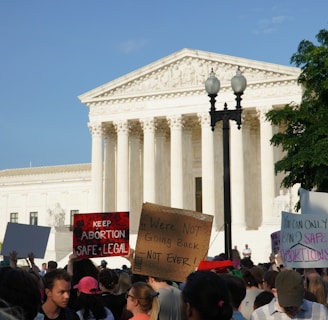Your Changing Landscape: Navigating Reproductive Health Post-Roe
Explore the significant impact of recent abortion legislation changes on women's health and reproductive rights in the U.S., and learn how communities are adapting in this crucial time."
12/26/20221 min read


In a landscape where reproductive rights are constantly evolving, it's crucial to stay informed about changes that might affect our health and choices. Recently, a study by the Guttmacher Institute highlighted a concerning trend: 100 days following the Dobbs v. Jackson Women’s Health Organization decision, at least 66 clinics across 15 U.S. states stopped offering abortion services.
Before this decision, these states had 79 clinics providing abortion care. This number dramatically fell to 13, all in Georgia, leaving no abortion providers in the remaining 14 states. These closures and service reductions have a profound impact on communities, especially as 40 of these clinics continue to provide other essential services, while 26 have completely shut down.
The implications of these changes are far-reaching. In states enforcing total or six-week abortion bans, legal uncertainties and restrictive laws have created an environment where providers often cannot offer abortions. This situation has forced many individuals to seek care out of state, bear additional costs, or face significant health risks.
These developments are particularly concerning for vulnerable populations already facing healthcare access barriers, such as low-income individuals, people of color, immigrants, young people, those with disabilities, and rural communities. The gap in clinic-based abortion care is expected to widen these disparities.
Our commitment is to provide a space for discussion, support, and resources during these challenging times. Understanding these changes and their impact on reproductive health is vital.
Summary of an Original article from the Guttmacher Institute
Original writers
Marielle Kirstein, Guttmacher InstituteJoerg Dreweke, Guttmacher InstituteRachel K. Jones, Guttmacher InstituteJesse Philbin, Guttmacher Institute
Woman's Choice is a private group of volunteers committed to empowering women by providing a comprehensive and accessible online resource for health and pro-choice information.
We champion informed health choices and personal autonomy, offering a supportive space with curated pro-choice resources and a cutting-edge AI medical chatbot for personalized guidance.
Our mission is to be a trusted ally in women's health, promoting well-being, knowledge, and empowerment.
help@womanschoice.info
comments or issues about the website please email:webworkforai@gmail.com
